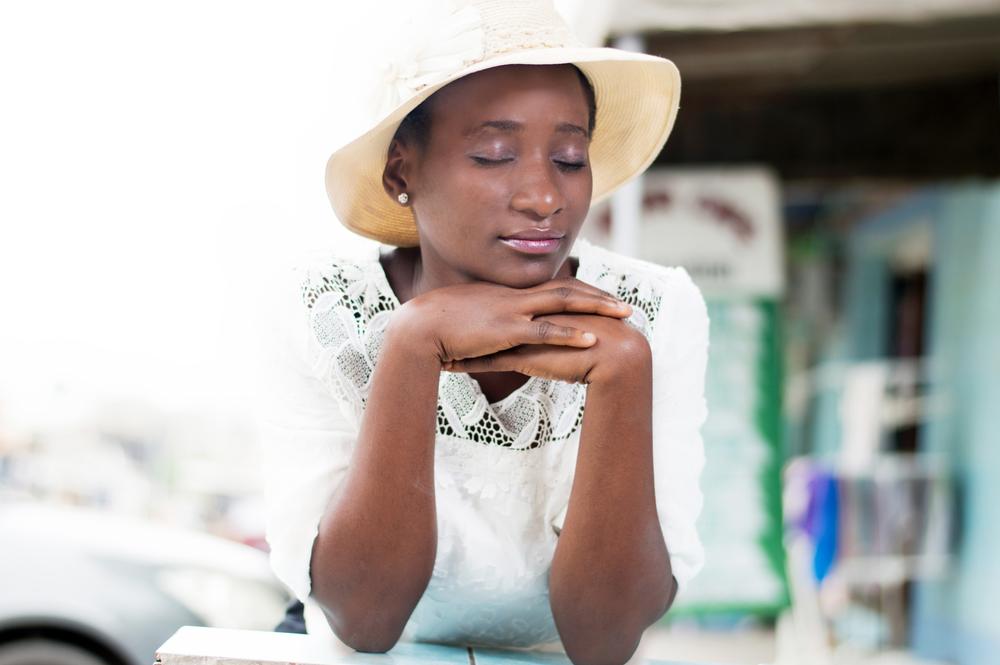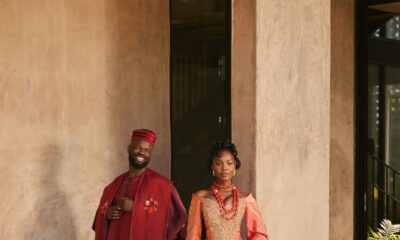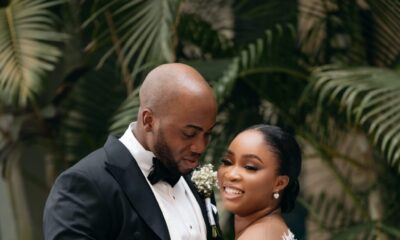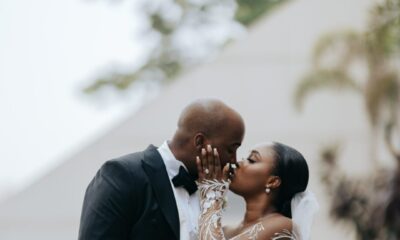Features
Chineze Aina: Just a Guest But a Nigerian Wedding Will Have You Spending So Much Money!
Asoebi fabric and asooke headgear ₦60,000 on the average (please note this could be considerably higher). Dressmaking costing an average of ₦30,000 (also note that it could cost way more than this for other people).Makeup and gele, say another ₦15k or more. To complete the look, you may have to include artificial nails costing almost ₦10k.
 Attending a Nigerian wedding typically comes with some attendant costs. While some may grumble about these costs, others continue to love attending weddings. It is usually the highlight of the month, sometimes year.
Attending a Nigerian wedding typically comes with some attendant costs. While some may grumble about these costs, others continue to love attending weddings. It is usually the highlight of the month, sometimes year.
I will attempt to comprehensively break down the financial implications of being a guest at a Nigerian wedding party, but not before I recount an incident that happened to me, one that buttresses this pertinent topic.
I had driven around Otunba Jobi Fele Way twice already, with no luck finding a parking spot. There are at least half a dozen event centres on that road, all booked on that Saturday. I assumed this because the street was teeming with people. As I drove, I was assailed with a remarkable assortment of colourful asoebi groups, stunningly dressed women, and some Yoruba demons thrown in as well – male friends or family of the couple dressed usually in white or other coloured agbada. The term “demon” stuck perhaps because of the emotional havoc they are believed to wreck on women‘s hearts after the wedding friendships are formed.
I drove past people dressed in yellow, gold, white and blue hues. Then another group dressed in blush, deep pink and gold hues. A few buildings later, I start seeing people dressed in silver, green, burgundy, and I knew I was close to the venue of the wedding I was attending. I was wearing a burgundy dress and silver gele.
I ultimately settled for a spot I had driven past twice. It was at least 1km from the wedding venue. I parked and realised it was not the best in the circumstances; my long acrylic nails, coupled with my form-fitting dress, made it impossible for me to buckle my 6-inch heels, and so I could not walk comfortably.
I shouldn’t have driven myself to the event. Period.
I braved the odds and started walking, and it dawned on me, after walking a few metres, that I wouldn’t make it to the event in one piece in those heels. I waddled like a penguin back into my car and resumed the search for parking.
Some guys who helped find parking spots for guests in the area, who I had ignored before, called out to me when they identified my car for perhaps the third time. I gave in and resignedly decided to accept their ‘expert’ recommendation. They instantly secured me a spot, this time about 100 meters from the venue. One of them graciously offered to help buckle my uncomfortable shoes. As he knelt, he asked, “Madam, shey your husband dey help you do your shoe like this for house?“ I replied gaily, “Yes na,” to which he and other ‘helpers’ nearby laughed and said, “Madam, you sure so? We be gentleman for here o.” I agreed he was indeed an honourable gentleman, and thanked him for the parking assistance with ₦500. In an instant, all the boisterous humour fled, as he stonily told me his standard fee was ₦1,000 and added that he supported me with my high-heeled shoes.
I was already weary and my concerned friends were calling non-stop to learn why I was delayed, so I paid him the ₦1,000 he demanded and left.
The event centre was located down a hilly road, and the road was constructed with granite and stones. Once again I couldn’t walk in my damn heels. One of the ‘helpers’ came promptly to gallantly grasp one of my hands. I was a little reluctant to accept his help because I didn’t want to pay any more fees. He smiled like he could follow my suspicious mind and revealed, “Fine mama, no worry, I no want to make you fall ni.” His voice was raspy.
At the venue, clever business people with crisp ₦200 notes offered to “Accept your previous notes and provide you new ones…” again, for a fee, of course. The exchange rate was ₦800 received in exchange for ₦1,000. I gave the woman ₦5,000 and she issued me ₦4,000 in crisp notes of ₦200. In Nigerian weddings, it is in bad taste to spray old notes. Therefore, money changers constitute an integral part of the wedding experience.
Another group was the unsolicited photographers who also formed a part of the commercial activities taking place at the wedding. I was very emphatic when I said, “I don’t want photos, please,” and they departed from me. It was 5 PM by now, so I guess they were already closing for the day, hence their not persuading me to take photos.
I was exhausted as I walked in. I noticed there was no need for the invitation ‘pass’, thank God for that. I couldn’t take any more negotiations. The gate was thrown wide open and the guards hailed rich-looking men, in exchange for small ‘happy weekend’ cash, so no one stopped me. Moreover, I was wearing asoebi. Asoebi typically grants right of passage. People not wearing asoebi generally respect themselves at Nigerian events, because drawing attention to yourself is much like self-harm.
At Nigerian weddings, it helps if you are strongly connected to the couple. It grants you access to certain perks like food, choice tables and drinks. Plus, have you noticed how people who are chummy with the family of the couple adopt a certain gait when they are approaching the food or cocktail stand?
Now, back to the possible financial implications associated with being a guest at a Nigerian wedding, I will outline them below:
Asoebi fabric and asooke headgear ₦60,000 on the average (please note this could be considerably higher).
Dressmaking costing an average of ₦30,000 (also note that it could cost way more than this for other people).
Makeup and gele, say another ₦15k or more.
To complete the look, you may have to include artificial nails costing almost ₦10k.
Throw in Uber money to and fro the venue (we can’t be jumping bus or okada and arriving sweating with one or more parts of your dress torn).
We are often dressed to the nines that we are unrecognisable and sometimes unapproachable, which is the reaction we were going for anyway. In all, it costs an average ₦100,000 to look and feel peng as a guest at a Nigerian wedding. We forget planning for gifts for the couple because of these costs.
What’s comforting for me is that I also find couples appreciate their guests’ contribution to the whole aesthetic appeal of the event and do not mind that guests don’t come bearing gifts. These days, beautiful guests equate to a glamorous life and appearing rich. Sounds phoney, but that’s our reality.
I do not think it is possible to exhaust this topic in one post. I ‘ll need some help. Please share, what is the most you have spent on yourself as a guest at a Nigerian wedding?




















